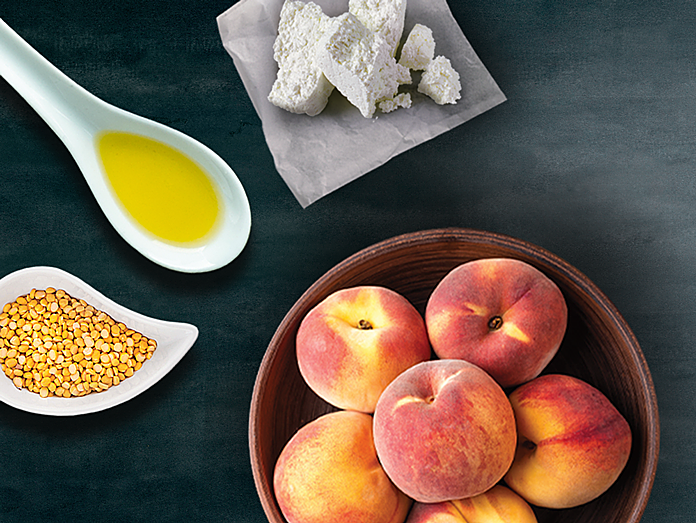Applications to the European Commission to include 9 Greek products on the EU’s list of food products with PDO (protected designation of origin), PGI (protected geographical indication) or TSG (traditional specialty guaranteed) status, have been submitted and are pending, according to data from the Community database on agricultural products, DOOR.
The most recent application was made on July 23, 2019, and what makes it unique is that it is the first TSG status application for a Greek product. The designation relates to Klarisio Rodakino peach variety and was requested by the ASEPOP Velventos cooperative.
About a month earlier, on June 28, a request for the recognition of Fava Amorgos as a PGI product had been submitted, while applications for the recognition of Fasolia Kattavias Rodou beans as PGI, of Fava Santorinis as PDO, and of Rodi Ermionis pomegranate as PDO are also pending since last year. In addition, a request has been submitted in January 2018 to recognize Krasotiri Ko / Tiri tis Possias cheese as PGI, while applications are pending since 2017 for Arseniko Naxou cheese (PDO) and Kritsa olive oil (PGI).
What is an EU quality scheme?
EU quality schemes aim at protecting the names of specific products to promote their unique characteristics, linked to their geographical origin as well as traditional know-how. Recognized as intellectual property, geographical indications play an increasingly important role in trade negotiations between the EU and other countries. Namely: Product names registered as PDO are those that have the strongest links to the place in which they are made; PGI emphasizes the relationship between the specific geographic region and the name of the product, where a particular quality, reputation or other characteristic is essentially attributable to its geographical origin; TSG highlights the traditional aspects such as the way the product is made or its composition, without being linked to a specific geographical area.



















